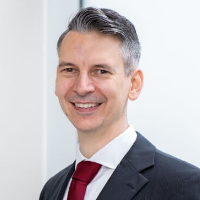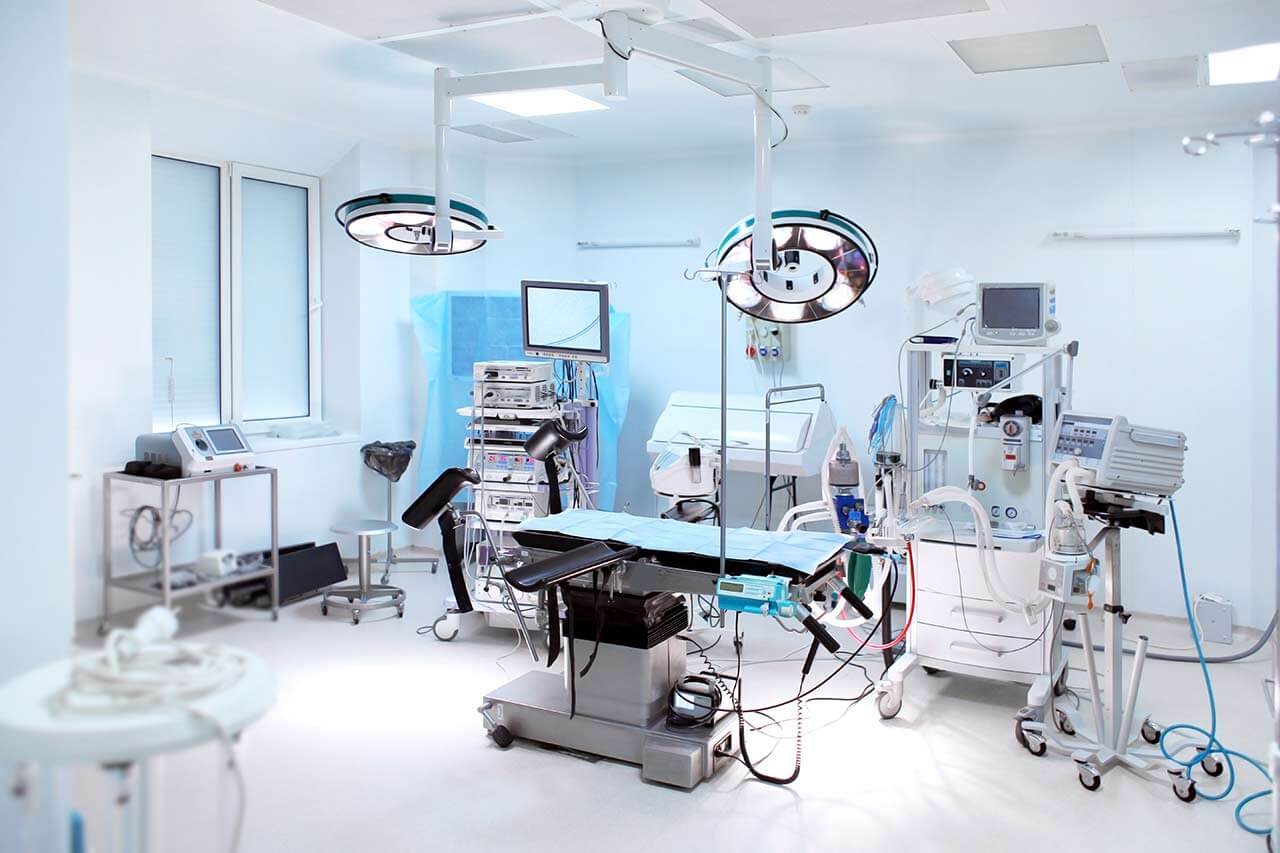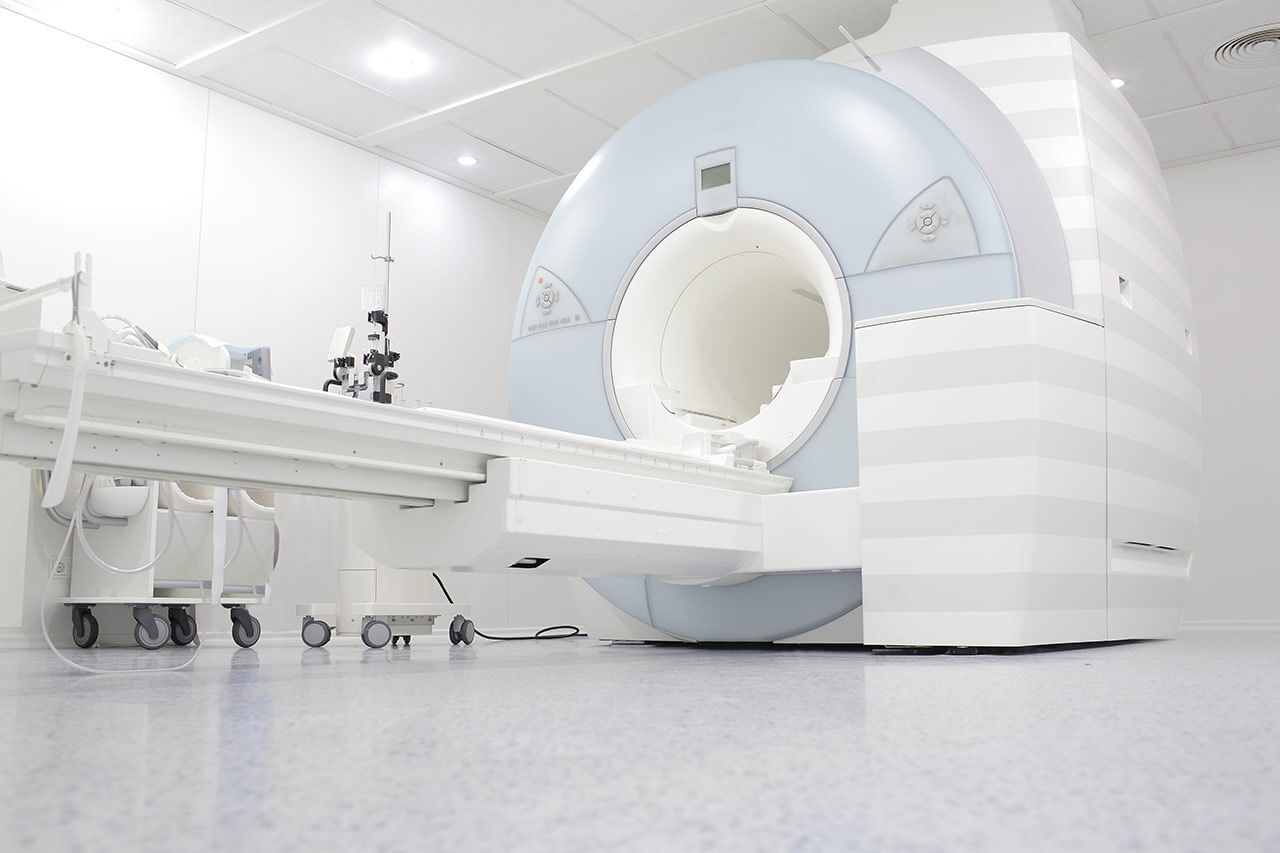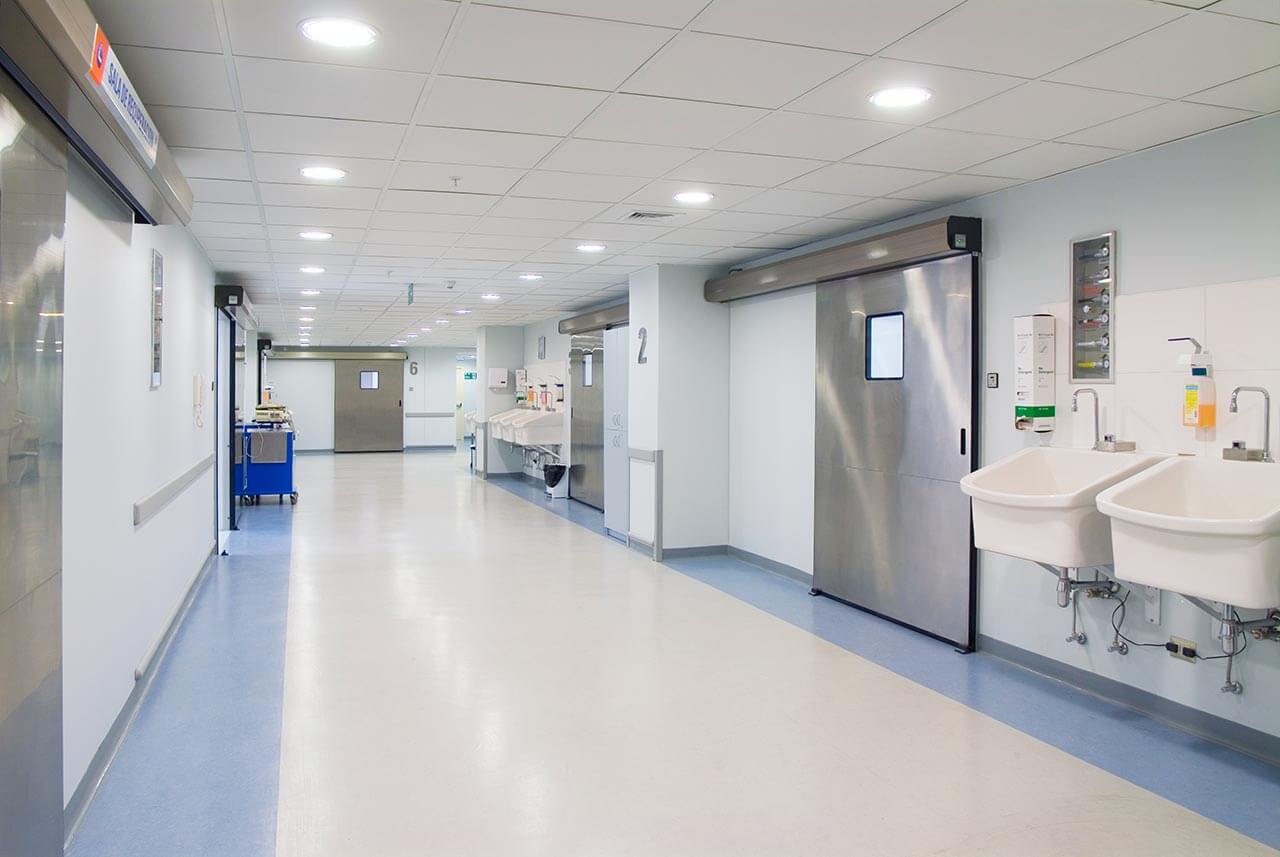
The program includes:
- Initial presentation in the clinic
- clinical history taking
- review of medical records
- physical examination
- urological examination
- laboratory tests:
- complete blood count
- general urine analysis
- biochemical blood test
- inflammation markers (CRP, ESR)
- blood coagulation analysis (aPTT, PT, INR)
- tumor markers, PSA
- ultrasound of pelvic organs (abdominal or through rectum)
- PSMA PET-CT
- nursing services
- consultation of related specialists
- treatment by chief physician and all leading experts
- explanation of individual treatment plan
Required documents
- Medical records
- MRI/CT scan (not older than 3 months)
- Biopsy results (if available)
Service
You may also book:
 BookingHealth Price from:
BookingHealth Price from:
About the department
The Department of Nuclear Medicine at the University Hospital Halle (Saale) provides a full range of radioisotope diagnostics and treatment at the highest level of university medicine. Patients can receive both inpatient and outpatient medical care. The department's diagnostic capabilities include scintigraphy, SPECT/CT, and PET/CT using a variety of tracers and advanced targeted radiopharmaceuticals. These tests provide important diagnostic data for suspected oncology, cardiopathology, thyroid, lung, kidney, bladder, and skeletal disorders. The department also offers a variety of highly effective therapeutic procedures, the most popular of which are radioiodine therapy for the treatment of thyroid diseases, radiosynoviorthesis for the treatment of joint lesions, selective internal radiation therapy for the treatment of liver tumors, and PSMA therapy for the treatment of metastatic prostate cancer. The department's doctors are highly qualified specialists with extensive experience in their area of specialization, which allows them to provide effective medical care to each patient, taking into account the specifics of their clinical case. The Head Physician of the department is Prof. Dr. med. Alexander Heinzel.
The department's team of doctors specializes in the treatment of benign and malignant thyroid diseases using radioiodine therapy. This treatment can be provided to patients with hyperthyroidism (overactive thyroid), goiter, and thyroid cancer. The essence of radioiodine therapy is the oral administration of the required dose of radioactive iodine (sodium iodide I-131) in the form of capsules or liquid. When radioactive iodine accumulates in the cells of the thyroid gland, it emits beta particles that destroy the cells of this organ. The radiopharmaceutical I-131 selectively accumulates in the cells of the thyroid gland, leaving the tissues outside the organ virtually unharmed. Radioiodine therapy is performed in a hospital setting (the average hospital stay is 3-5 days) because the patient becomes a source of gamma radiation for a short time after taking the drug. The therapeutic method is highly effective and at the same time absolutely safe. The final result of the therapy can be assessed after 2-3 months. Prior to radioiodine therapy, a comprehensive diagnosis is required, including laboratory tests, thyroid ultrasound, and thyroid scintigraphy. In addition, patients are recommended to follow a special diet with the exclusion of iodine-rich foods from the diet and a complete refusal to take iodine-containing medications.
The department's medical team also performs radiosynoviorthesis (RSO), a radioisotope procedure to treat inflammatory joint disease with pain. The therapy is performed on an outpatient basis and involves the injection of a radionuclide into the affected joint. The RSO procedure is highly effective in the treatment of rheumatoid arthritis, arthrosis, seronegative spondyloarthropathies, crystalline arthropathies, pigmented villonodular synovitis, arthropathies associated with hemophilia, and other pathologies. Prior to radiosynoviorthesis, the patient will undergo an examination using a triple-phase bone scan; an ultrasound and/or X-ray may also be required. In 80% of cases, RSO treatment can significantly alleviate pain without causing serious side effects. The procedure can be repeated if necessary.
Lutetium-177 PSMA therapy is one of the medical services offered by the department. It is successfully used for the treatment of metastatic prostate cancer, when standard methods do not give the desired result and the oncopathology continues to progress. The advisability of PSMA therapy is determined by an multidisciplinary tumor board after an analysis of the previous treatment and a careful review of the results of the preliminary diagnosis (laboratory tests, renal scintigraphy, 68Ga-PSMA PET/CT to assess PSMA expression, etc.). Lutetium-177 PSMA therapy is performed in a hospital setting. The patient must stay in the hospital for 2-3 days. The first stage of PSMA therapy is an infusion of an amino acid solution to protect the kidneys. Approximately 1 hour later, the radiopharmaceutical 177Lu-PSMA is administered intravenously. Lutetium-177 PSMA therapy helps stop the progression of metastatic prostate cancer and significantly increases the life expectancy of patients; in some cases, it is possible to achieve complete cancer remission. PSMA therapy is well tolerated with no serious side effects, while being a highly effective method of combating progressive prostate cancer. According to the standard protocol, two courses of Lutetium-177 PSMA therapy with an interval of about 8 weeks is recommended, after which a follow-up 68Ga-PSMA PET/CT scan is done, based on the results of which the physicians of the department evaluate the result of the treatment and the advisability of repeating the course of therapy.
The department's clinical focuses are as follows:
- Diagnostic services
- Positron emission tomography with computed tomography (PET/CT)
- Gastrointestinal scintigraphy to search for a source of bleeding and detect Meckel's diverticulum
- Myocardial perfusion scintigraphy
- Brain scintigraphy: neuro-SPECT, DaTSCAN™, and IBZM-SPECT to detect neurodegenerative diseases
- Bone scintigraphy
- Liver scintigraphy
- Scintigraphy with anti-granulocyte antibodies and labeled leukocytes to search for the source of the inflammatory process
- Pulmonary ventilation and perfusion scintigraphy
- Gastric emptying scintigraphy
- Parathyroid scintigraphy
- Renal scintigraphy
- Thyroid scintigraphy
- Sentinel lymph node scintigraphy
- Esophageal scintigraphy
- 123I-mIBG or 111In-octreotide tumor scintigraphy
- Radioimmunoassay in an in-house laboratory
- Therapeutic services
- Radioiodine therapy for the treatment of benign and malignant thyroid diseases
- Radiosynoviorthesis for the treatment of inflammatory joint diseases
- Lutetium-177 PSMA therapy
- Selective internal radiation therapy for the treatment of malignant liver tumors
- Peptide receptor radionuclide therapy for the treatment of metastatic neuroendocrine tumors
- Other medical services
Curriculum vitae
Prof. Dr. med. Alexander Heinzel has been Head Physician of the Department of Nuclear Medicine at the University Hospital Halle (Saale) since October 1, 2022. Previously, he was a Senior Physician in the Department of Nuclear Medicine at the University Hospital RWTH Aachen.
Prof. Heinzel has been actively involved in teaching for many years and received his Master of Medical Education (MME) in 2020. He has also been a Member of the Continuing Education Committee of the German Society for Nuclear Medicine (DGN) since 2019. He was appointed as an Expert of the Institute for Medical and Pharmaceutical Trials (IMPP) in 2020.
Prof. Alexander Heinzel studied medicine at the Heinrich Heine University Duesseldorf, Germany, and Nantes University, France. He completed his habilitation at the Heinrich Heine University Duesseldorf in 2011. Since 2020, Dr. Heinzel has held the position of Extraordinary Professor for Nuclear Medicine at the RWTH Aachen University.
Photo of the doctor: (c) Universitätsklinikum Halle (Saale)
About hospital
According to the prestigious Focus magazine, the University Hospital Halle (Saale) is one of the best medical institutions in Germany!
The history of the hospital goes back more than 300 years, and during this time it has managed to gain an excellent reputation not only in Germany, but also throughout the world. The hospital positions itself as a specialized healthcare facility for the treatment of severe and rare diseases and injuries. The hospital provides medical care to patients of all ages in compliance with the latest scientific achievements. The hospital is distinguished by successful research activities, especially in the field of cardiovascular diseases and oncopathologies – the specialists in these areas have made significant contributions to the development of the very latest diagnostic methods and therapeutic approaches.
The University Hospital Halle (Saale) has 30 specialized departments representing almost all areas of modern medicine, as well as 17 narrowly focused institutes. About 35,000 patients receive qualified medical care of European standards in the hospital every year, and more than 212,000 patients are served on an outpatient basis. This number of patients is evidence of the high efficiency of medical services and the excellent image of the hospital in the international medical arena; patients from all over the world regularly seek medical attention here.
Some of the hospital's structural units deserve special attention. For example, the Central Emergency Department (the largest in Saxony-Anhalt), modern dental clinics, the Perinatal Center, and the Transplant Center, which has a history of more than 40 years. The Transplant Center performs more than 40 kidney transplants annually, most of them from living donors.
Thanks to the use of the latest medical technologies and the availability of state-of-the-art equipment, many previously high-risk surgeries and procedures can now be performed in the hospital using sparing techniques. In this context, hybrid cardiac surgery and robotic surgery using the innovative da Vinci Si® system in urology are worthy of mention.
An integral part of the successful clinical practice of the University Hospital Halle (Saale) is the availability of experienced and competent medical staff. The total number of employees at the hospital is more than 4,450. Many physicians are known far beyond the borders of Germany: they regularly conduct important research that enables the development of modern medicine. In addition, the hospital specializes in training medical students, so qualified doctors and professors are willing to pass on their experience to the younger generation.
The hospital has many quality certificates such as DIN EN ISO 9001:2015 certificate, German Cancer Society (DKG) certificate, JACIE certificate, EndoCert certificate, ClarCert certificate, German Spine Society (DWG) certificate, German Trauma Society (DGU) certificate, CERT iQ certificate, LGA InterCetert certificate, and others.
Photo: (с) depositphotos
Accommodation in hospital
Patients rooms
The patients of the University Hospital Halle (Saale) stay in comfortable single, double, and triple rooms with a modern design. All patient rooms have an ensuite bathroom with a toilet and a shower. The standard patient room includes a comfortable automatically adjustable bed, a bedside table, a wardrobe, a table and chairs for receiving visitors, a TV, a radio, and a telephone. The patient rooms have access to Wi-Fi. For safety reasons, the use of laptops and cell phones is prohibited in some areas, including the intensive care units. The hospital also offers enhanced-comfort patient rooms.
Meals and Menus
The hospital offers delicious and well-balanced meals three times a day: breakfast, lunch, and dinner. Patients and their companions can choose from three daily menus, which always include dietary dishes. If necessary, an individual menu can be prepared for the patient. Children are offered a special menu with healthy and tasty dishes, rich in nutrients necessary for a growing body.
Further details
Standard rooms include:
![]() Toilet
Toilet
![]() Shower
Shower
![]() Wi-Fi
Wi-Fi
![]() TV
TV
Religion
Religious services are available upon request.
Accompanying person
Your accompanying person may stay with you in your patient room or at the hotel of your choice during the inpatient program.
Hotel
Your accompanying person may stay with you in your patient room or at the hotel of your choice during the inpatient program.




